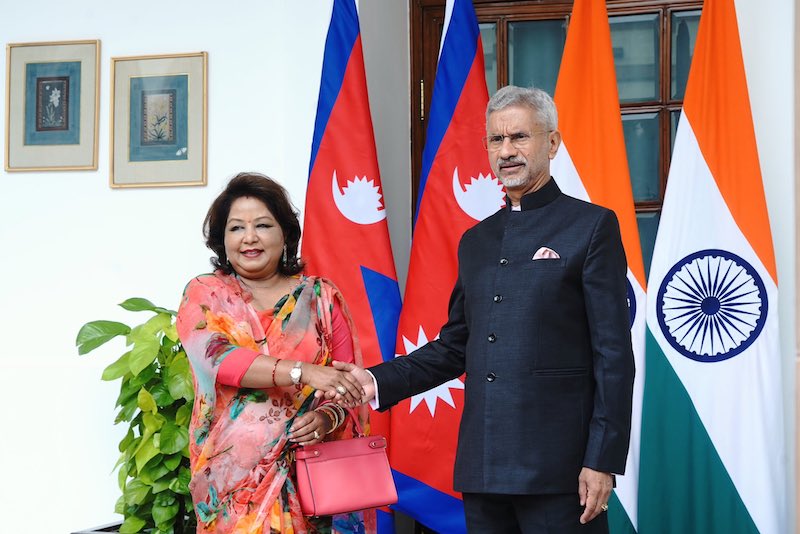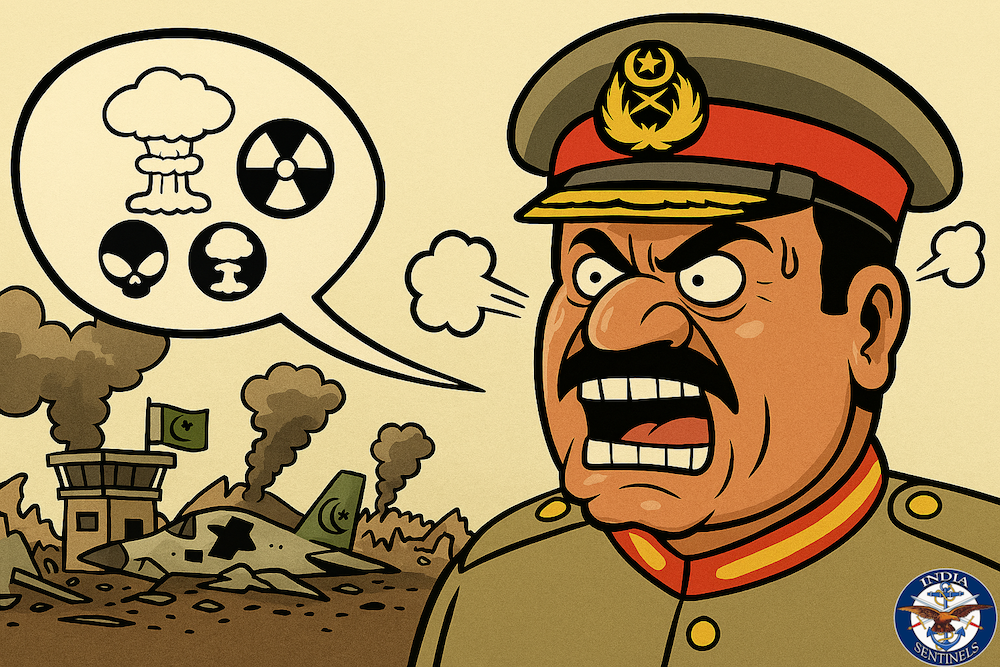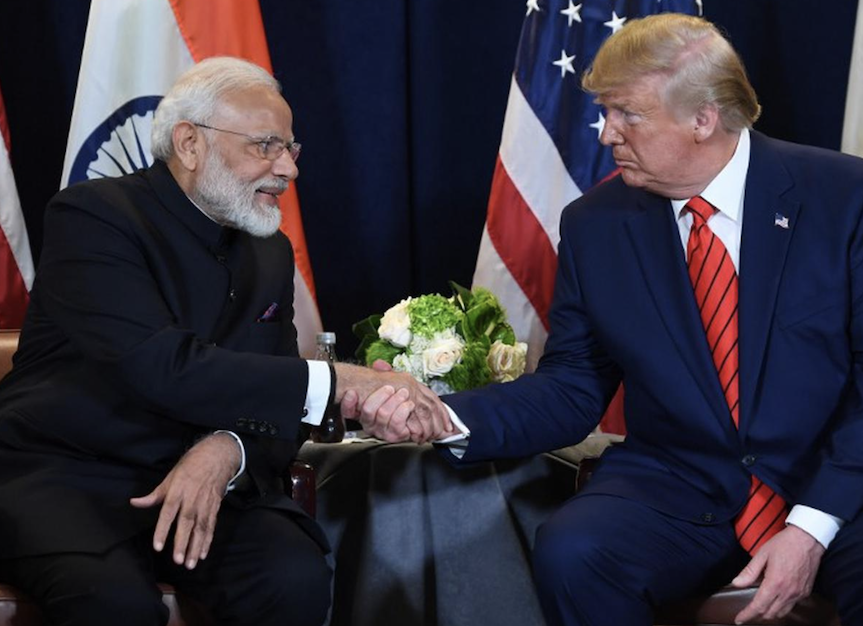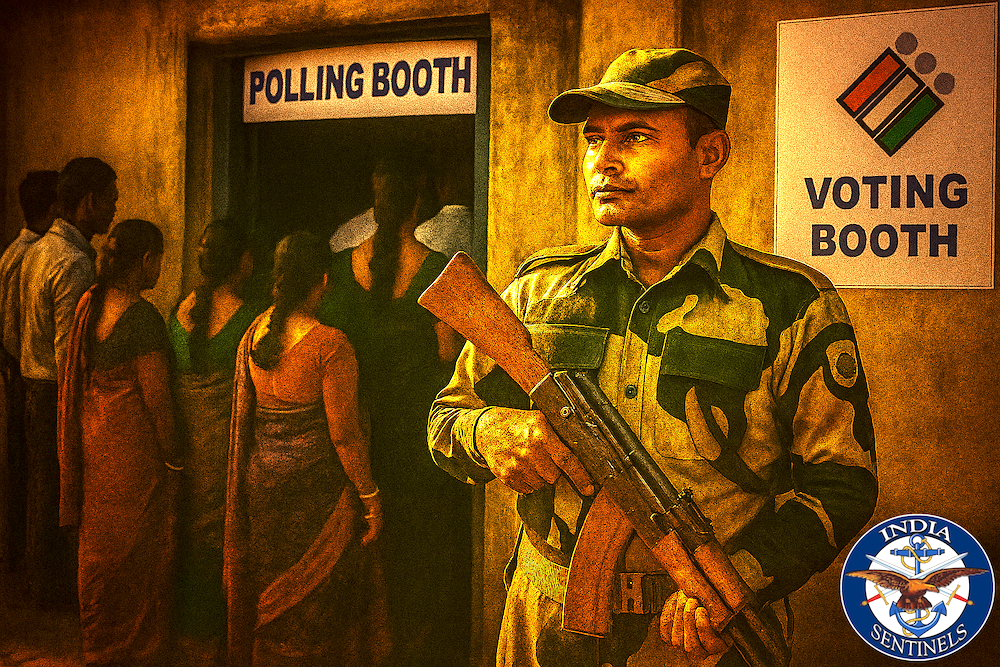 The Nepali foreign minister, Arzu Rana Deuba (R), with the Indian foreign minister, S Jaishankar, in New Delhi, on August 19, 2024. (Photo: X/@EONIndia)
The Nepali foreign minister, Arzu Rana Deuba (R), with the Indian foreign minister, S Jaishankar, in New Delhi, on August 19, 2024. (Photo: X/@EONIndia)
This month’s Maldives visit of the foreign minister, S Jaishankar, and the Nepal trip of the foreign secretary, Vikram Misri, are being hailed as noteworthy events in diplomatic circles. These visits come in the wake of seething political unrest and anarchy in neighbouring Bangladesh, which led to the ouster of the country’s prime minister, Sheikh Hasina Wazed, who then fled to India for refuge.
Undeniably, New Delhi’s decision to send its foreign minister and foreign secretary to the Maldives and Nepal, respectively, to cement ties with those countries is twofold.
Firstly, Pakistan and China are closely monitoring the political events in Bangladesh and Sheikh Hasina’s presence in India. These countries are undoubtedly seeking opportunities to challenge India’s dominating presence in Bangladesh and tarnish New Delhi’s image globally by amplifying the pro-Hasina rhetoric emanating from certain sections of Indians and Indian media. New Delhi is well aware that closer proximity to Hasina may prove costly at present.
Consequently, the prime minister, Narendra Modi, refrained from meeting her when she landed at the Hindon airbase in Ghaziabad, in the National Capital Region, after flying from Bangladesh. It goes without saying that India does not wish to be seen as having close ties with Hasina at this juncture. Therefore, to divert global attention, especially that of China and Pakistan, from India’s stance on Bangladesh, New Delhi decided to dispatch its foreign minister and foreign secretary to the Maldives and Nepal.
Secondly, while employing diversionary tactics against both Pakistan and China, India could utilize this time and diplomatic opportunity to shed its image as the “big brother” in the Saarc (South Asian Association for Regional Cooperation) region and soothe the strained diplomatic nerves of its two South Asian neighbours – the Maldives and Nepal.
Public memory may be short, but not so fleeting as to forget the diplomatic row between India and the Maldives on social media following Modi’s posting of photos during his holiday in Lakshadweep in January this year. The hashtag #BoycottMaldives went viral in India, with undiplomatic and uncouth mudslinging heaped upon both countries.
While diplomatic pundits, ostensibly to please their superiors, went so far as to label the present Maldivian incumbent as anti-India with alleged diplomatic leanings towards China, Male did not hesitate to issue a warning to its larger neighbour: “We may be small, but that does not give you the right to bully us.”
In the wake of Jaishankar’s Maldives visit, Indian diplomatic mandarins are likely to consign this “unpleasant diplomatic row” to the dustbin of history. However, they would do well to remember that history repeats itself, and those who forget history are condemned to repeat it. Apart from the diplomatic bonhomie generated between the two countries by Jaishankar’s arrival in Male, New Delhi must seize this opportunity to extend multifaceted cooperation to its maritime neighbour, both in letter and spirit, to thwart any expansionist designs secretly harboured by China in this atoll nation.
If the foreign minister’s visit to the Maldives was a smart diplomatic manoeuvre, the foreign secretary’s visit to Nepal is even more so. During Misri's stay in Kathmandu, diplomats from both countries began with a panegyric on the cultural and civilizational similarities shared by the two nations. Beyond that, Misri’s dealings with the Nepalese incumbent leadership was markedly different from those in power during the Himalayan country’s monarchical days – and thereafter.
If we recall, there was a time when India-Nepal relations were characterized by a “diplomacy of domination”. Reflecting on 1989, we encounter one of the most striking features of this relationship – an open border between the two countries. Under this arrangement, unhindered access was granted to people and goods from either side.
On one fateful morning in 1989, barricades were erected at 13 of the 15 checkpoints along the entire border, straining the relationship between the two countries more than ever before. This occurred due to the expiry of two treaties between India and Nepal. The first one was related to trade, which provided preferential treatment to each other’s goods. The second concerned transit rights, under which there were 15 checkpoints to facilitate the entry of goods imported by Nepal through Kolkata. Additionally, there were six entry points to facilitate the movement of goods between Nepal and India.
All hell broke loose when the barricades were erected, which prompted Nepal to accuse India of bullying its smaller neighbour. At that time, Nepal’s predicament as a landlocked country surrounded by both India and China was particularly noteworthy.
Nepal has come a long way since then. It is no longer considered a weak-kneed nation. After the abolition of the monarchy in Nepal, China wasted no time in setting its sights on developing long-term trade and strategic relationships with the country. China effectively used its geopolitical influence and economic leverage to draw Kathmandu closer to Beijing, and now maintains strategic control over the nation.
In contrast, in the aftermath of the monarchy’s abolition, New Delhi failed to seize the opportunity to reassess relationships and develop ties by providing support to democratic forces in Nepal. Moreover, India’s diplomatic actions during the adoption of Nepal’s new constitution left much to be desired.
These factors further distanced Kathmandu from New Delhi and nudged it towards envisioning lasting relationships with Beijing. Today, what India needs is a decisive policy towards Nepal based on respecting mutual sensitivities. Irritants in the relationship, such as the 1950 Treaty of Peace and Friendship, need to be addressed and resolved.
Nonetheless, India’s recent moves towards mending ties with its neighbours and attempts to fix lingering issues is a positive step towards the right direction.
Disclaimer: The views expressed in the article are the author’s own and don’t necessarily reflect the views of India Sentinels.
Follow us on social media for quick updates, new photos, videos, and more.
Twitter: https://twitter.com/indiasentinels
Facebook: https://facebook.com/indiasentinels
Instagram: https://instagram.com/indiasentinels
YouTube: https://youtube.com/indiasentinels
© India Sentinels 2024-25










